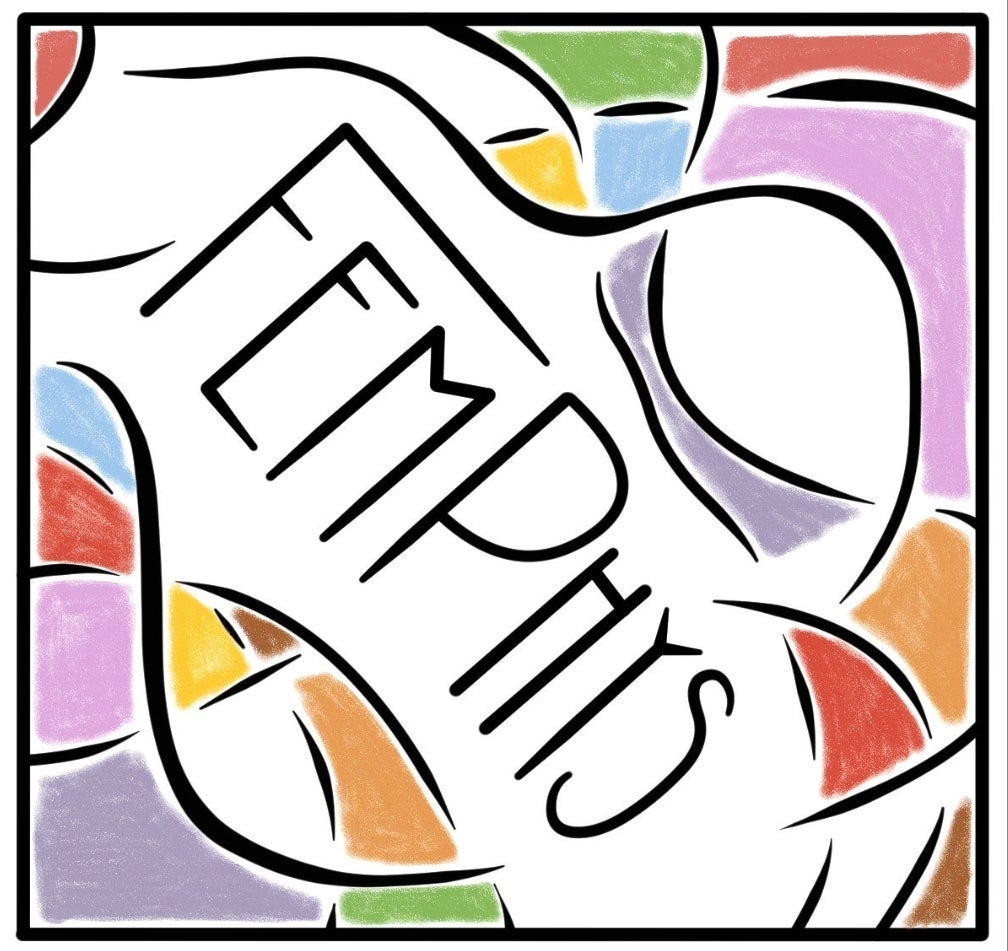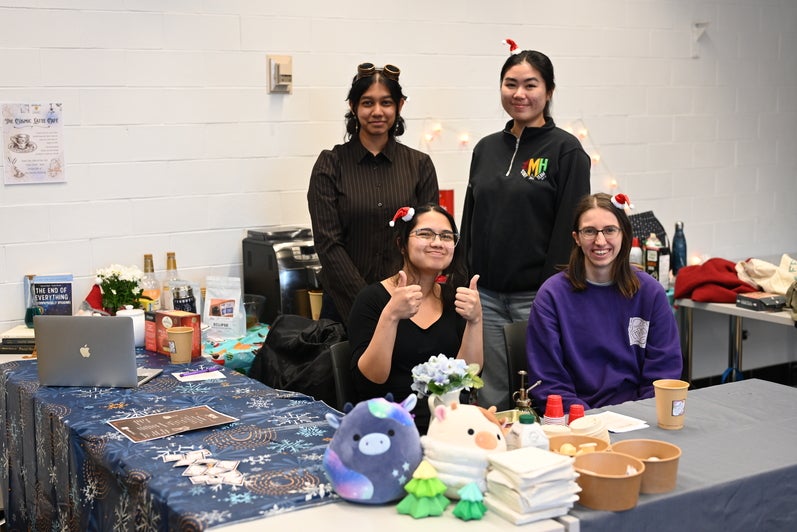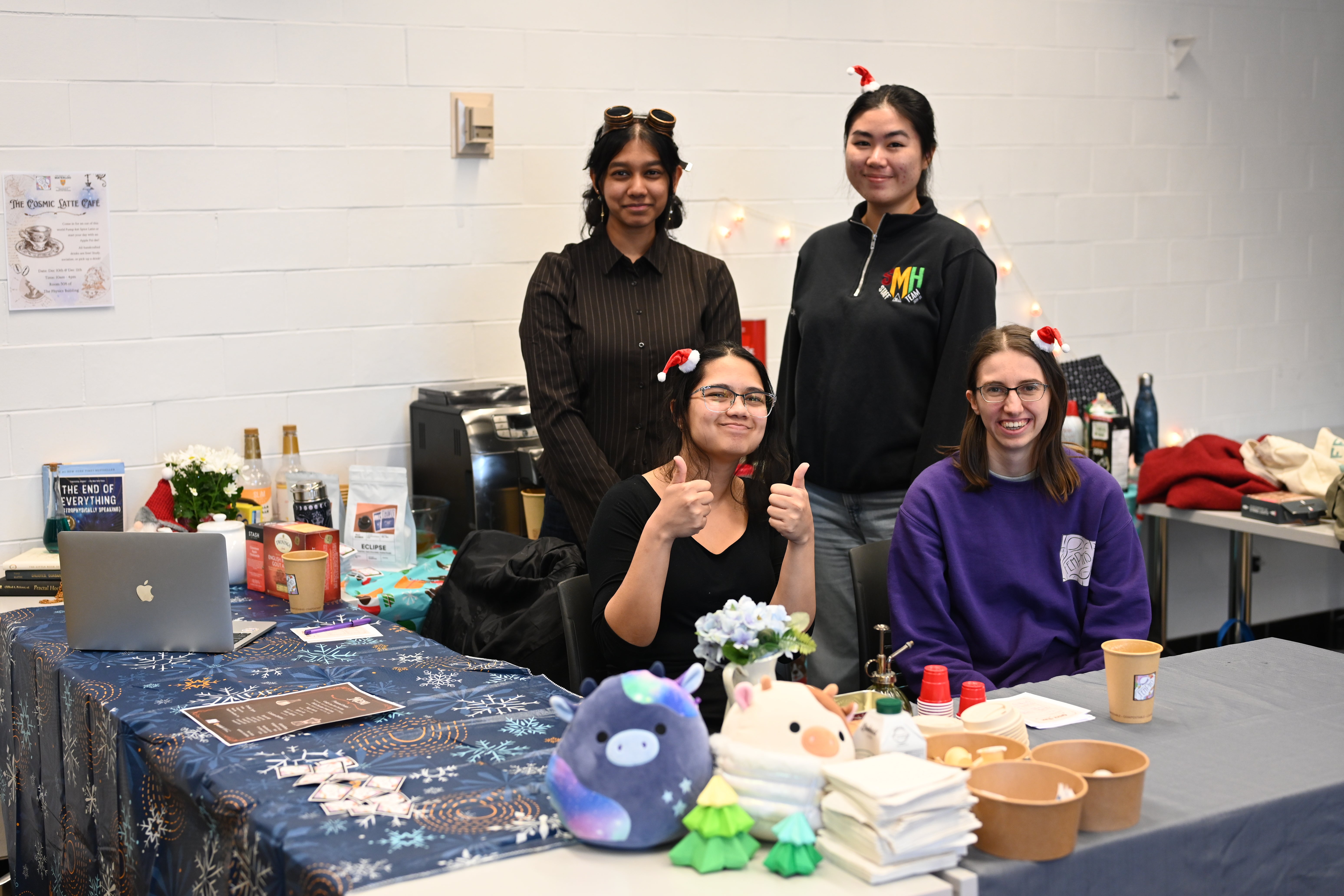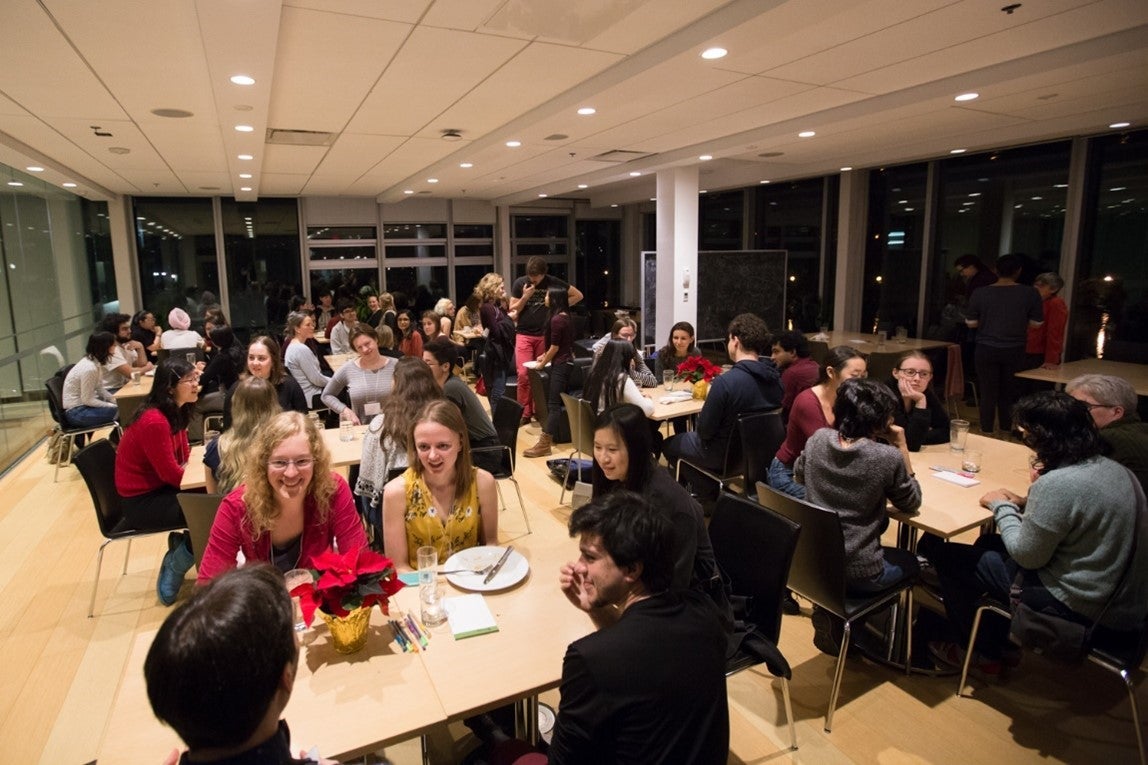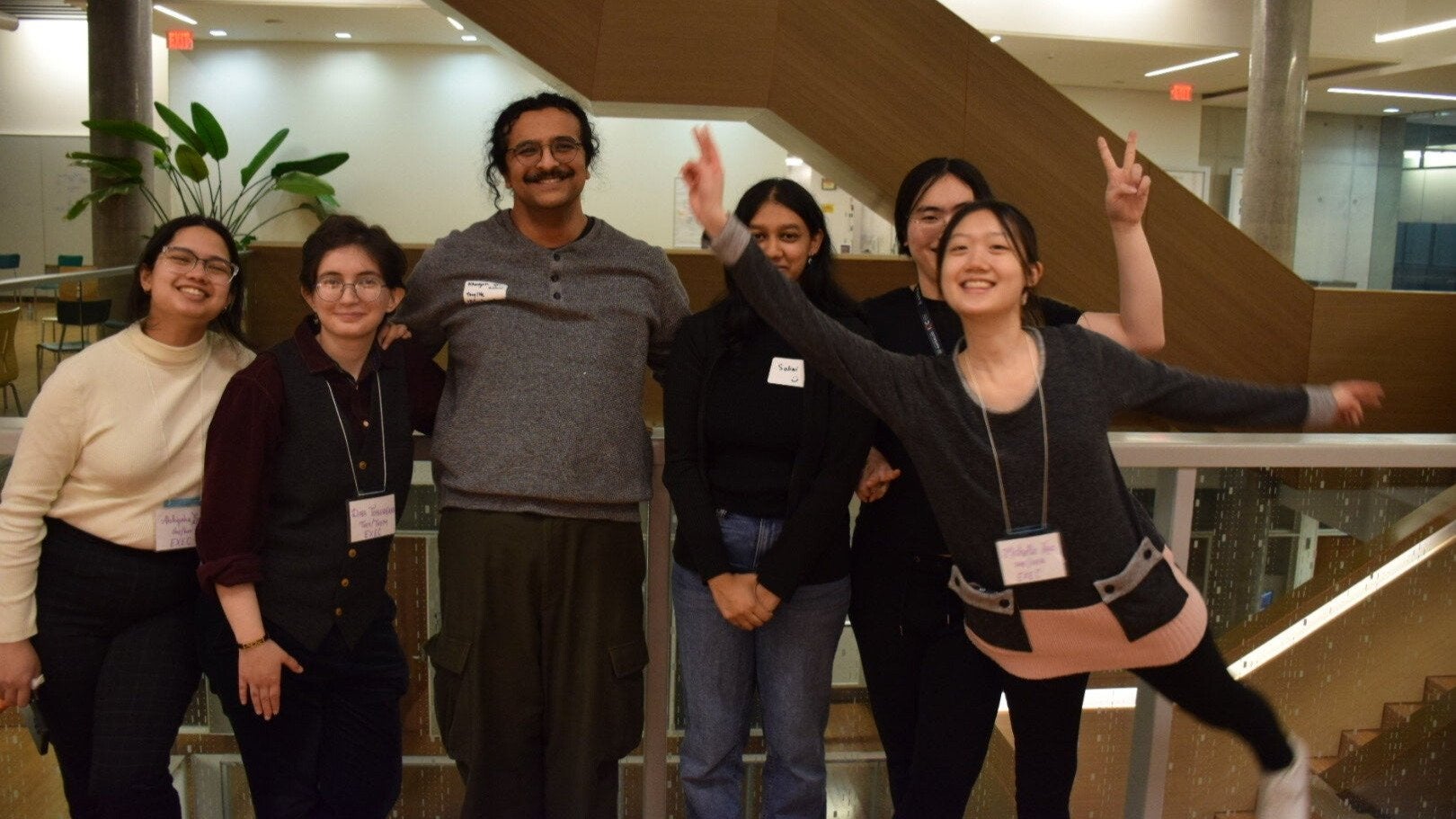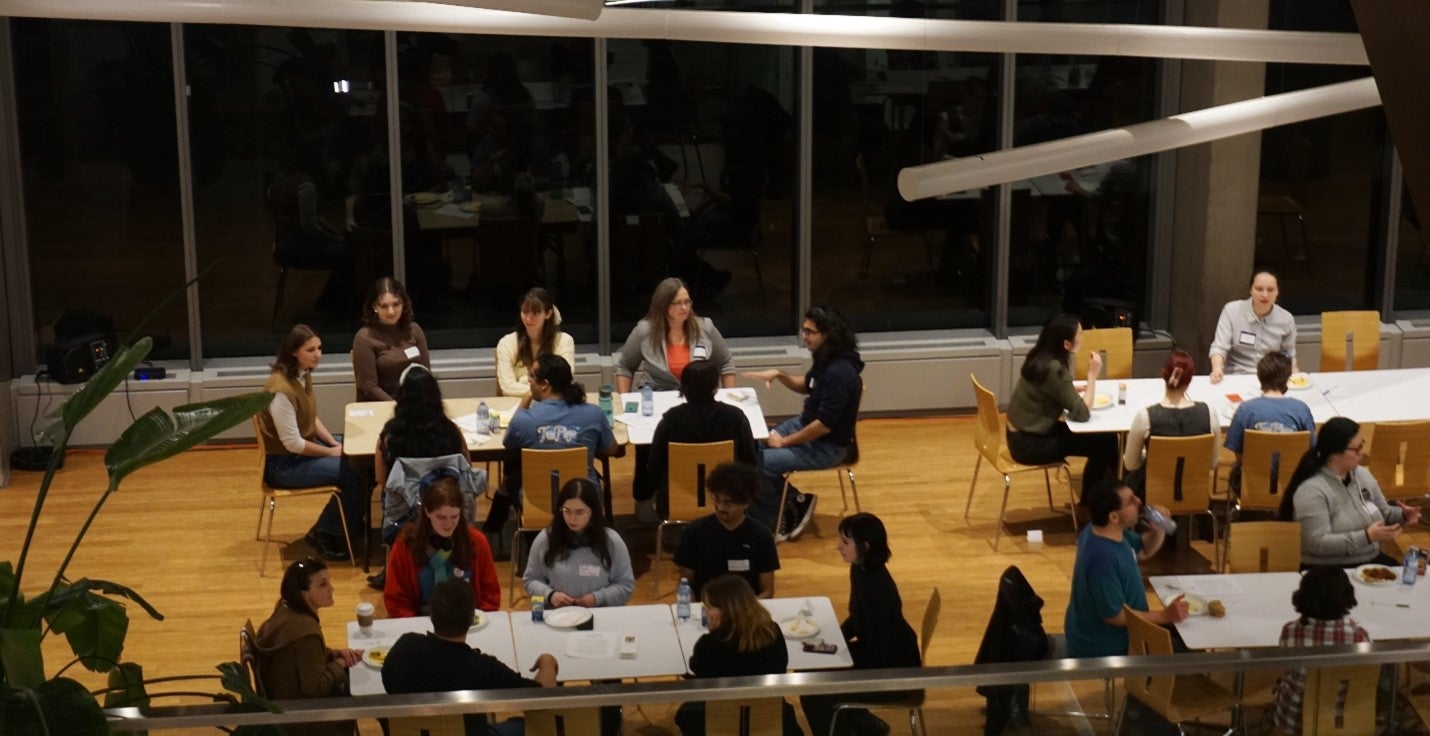FemPhys is an organization that is part of the EDI committee under the Department of Physics and Astronomy. FemPhys is open to anyone, with aims to facilitate education, sharing of experiences, and friendships for women, nonbinary individuals, and minoritized people in physics at UWaterloo.
FemPhys works with the Department of Physics & Astronomy to host community-building events throughout the year, such as our Mentoring Night and Queer-Trans Meetup. Additional events and discussions on topics including, but not limited to, physics, mathematics and philosophy may occur throughout the year where interested students can join to connect with fellow peers and those at different academic and professional levels.
FemPhys is headquartered in PHYS 104, where there is a library, a kitchenette, and a relaxing place to study. To connect with FemPhys, follow us on Instagram, join us on Discord, or send us an email at femphys@uwaterloo.ca.
